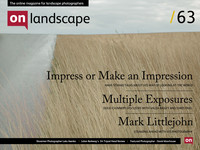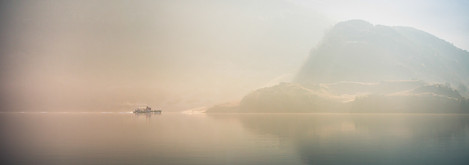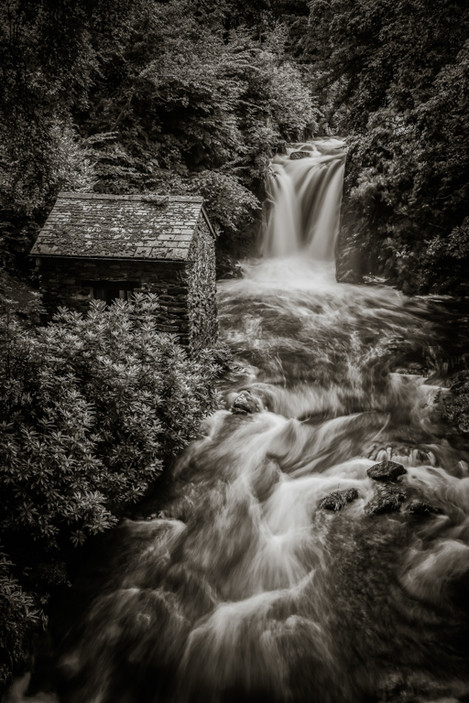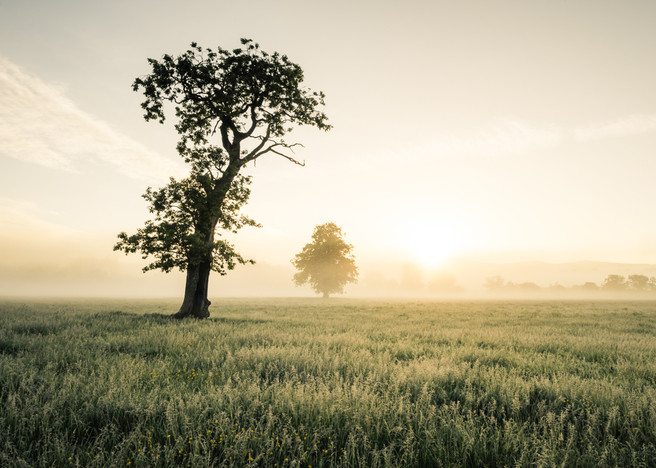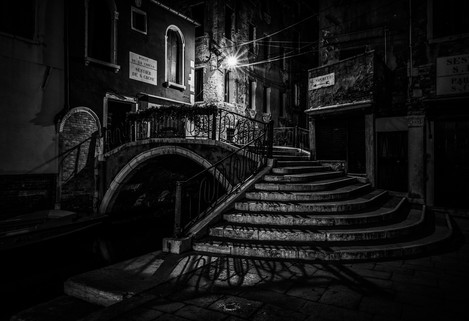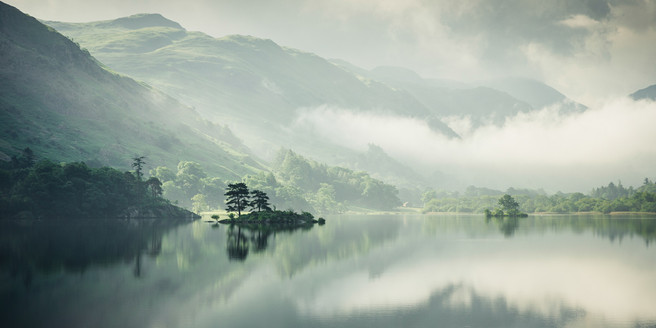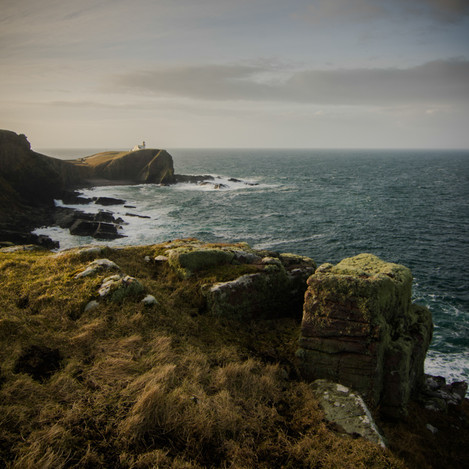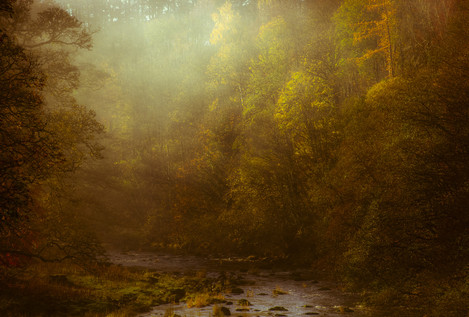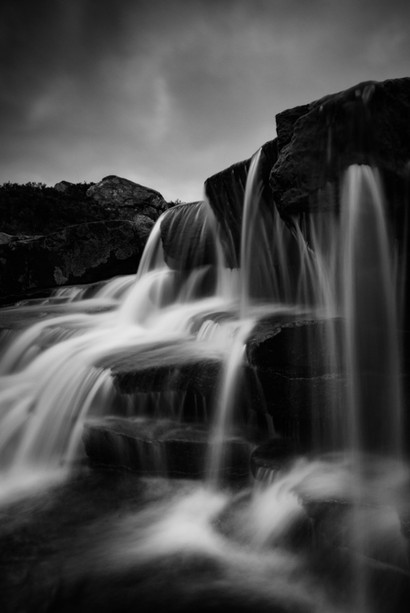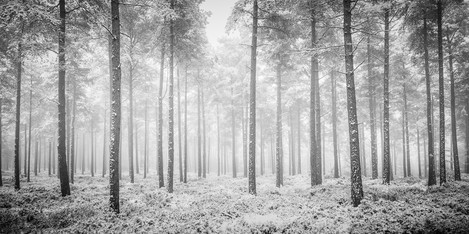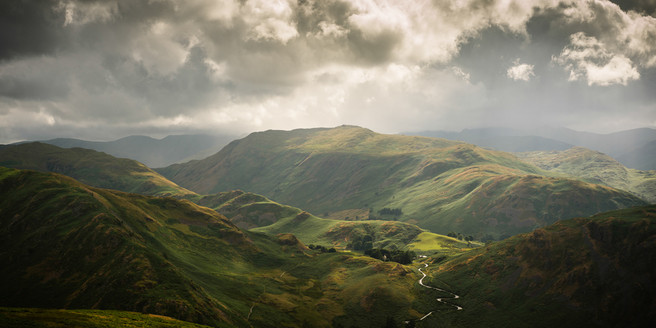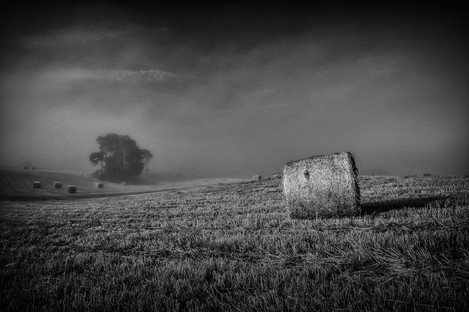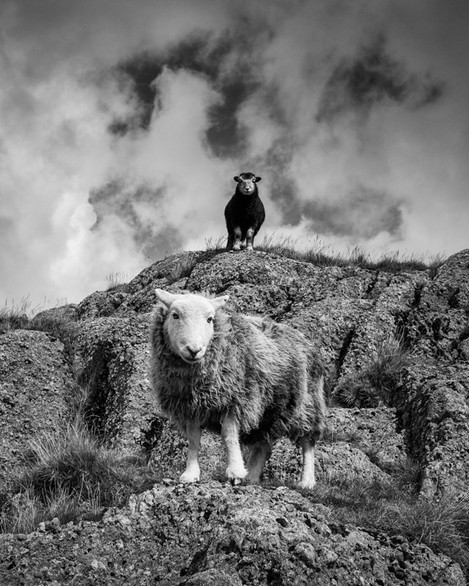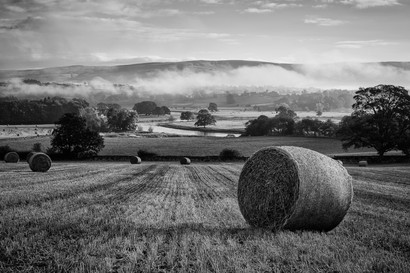A Change of Pace

Tim Parkin
Amateur Photographer who plays with big cameras and film when in between digital photographs.

Mark Littlejohn
Mark Littlejohn is a landscape photographer based on the edge of the English Lake District. He specialises in moody, atmospheric early morning conditions and offers bespoke one-to-one workshops and Lakeland tours.
This interview was in 2013. Since then Mark Littlejohn has won the Landscape Photographer of the Year 2014. You can read his latest interview here and his video interview in the run up to the Meeting of Minds Conference.
We've been hassling Mark Littlejohn since 2011 for an interview after seeing some of his wonderful Lake District photography and persistence as finally paid off when we visited him at his Penrith home and spent a very wet day in a valley off Ullswater, his watery muse.
Mark has only taken up photography in the last few years but obviously has a strong vision and a dedicated persistence in realising it. From a hobby to de-stress from possibly one of the worst jobs in the world to a passion that has transported him into a different lifestyle where he now works on the pleasure boats on Ullswater, showing some of the passengers what he sees out there.
After the wet trip out we retired to Mark's house and surrounded by two of the biggest cats you've ever seen we spent a pleasant hour chatting about his love of the lakes and more..
Tim: We've just spent a day down Deepdale off Ullswater and we were going do some video but we had the biggest volume of rain the Lakes has seen this whole summer
Mark: I think we would have needed underwater gear to get anything done.
T: So we're back at Mark Littlejohn's house and sitting with a glass of wine and taking a more leisurely approach to interviewing. You only started photography recently is that correct?
M: Yes I started almost exactly three and a half years ago today when I took possession of a Pentax SLR.
T: What made you pick it up in the first place then?
M: It was a roundabout story in that the job I was doing at that time was quite stressful which led me to doing a bit more walking than I used to - I used to do a lot when I was younger. This was about five or six years ago and I'd walk now and again, Golf was my main hobby though. I was advised to do a bit more excercise to destress and living five miles from Ullswater it was quite easy to nip out and walk around the feels.
And the winter of 2009/2010 was magical, even from a non-photographers perspective. And I'd taken some pictures with the family compact camera, a tiny little Canon thing, and I was showing them to somebody and they said "You need to put them online", so I put them onto Flickr and I started browsing everybody elses photographs. And they were just people like me who were going out walking and taking pictures and I thought "I quite like that". Even when I was walking along in the landscape I could always look at a bit of landscape and recognise it as nice, of having potential, taking a photograph in your mind so to speak.
So I read a few camera reviews and bought the Pentax Kx which had not long come out then. It was quite small and I think the fact it wasn't Nikon or Canon appealed to me. I went out the next day and got a photograph of a deer using the 55-300mm; It was a proper wild red deer - not a Glen Etive red deer that comes up asks for a sandwich - and I was quite pleased with it. I was only taking pictures of my walks really, I wasn't getting up at dawn or shooting sunsets. But as I was looking around Flickr and seeing people of the likes of Brian Kerr, a photographer from Carlisle who was also taking pictures of around Ullswater, who wasn't a professional but was photographing out of love of the landscape and trying to record it as best they could and they inspired me and I got more and more hooked.
17th July 2010 (you'll have to excuse me I've got a strange memory for places and dates) I'd not long come into possession of a Sigma 10-20 lens, I was still getting to grips with the fact that that made the foreground so important, and I'd also bought a B&W 10 stop filter. I went past a particular road between Great Salkeld and Langwathby and there was a dead tree up on the hillside that looked across to the Pennines and I thought "Right I'm going to have a go with this wide angle lens and 10 stop filter" and I took this picture at dawn and when I got home I saw it and thought "Bloody hell! I took that!". I think prior to this I was just going on walks and taking pictures so I would pass by a scene and take a photograph - there wasn't any real thought about putting this there and that over there.
T: Was the 10-20mm a turning point then?
M: Well not at first because I remember I'd gone up to Threshwaite Mouth and up onto Caudale Moor and the view over Stony Cove Pike to Windemere beyond is fabulous and I took it with this 10-20mm and I thought "Oh that will be nice!" and I got it home and onto the computer and thought "Where the bloody hell has the view gone!". And of course it's like looking at the wrong end of a telescope. So that changed my perspective if you like (poor pun -ed).
Taking the picture of the tree wasn't so much the fact that I took it and thought "I like that!". It was the fact that I'd actually seen the shot in my head and had visualised the shot so when the sun came up it was behind the trunk etc. You had long shadows and golden light and so to visualise this in your head and find out that it almost matched up with what was on screen. That was it - I was hooked.
So for the last three years I've been trying to get a better picture and failing :-)
T: So you were really only showing your images on Flickr at the time
M: Yeah - I'd got invited to two or three groups and that was it. I wasn't on Facebook and there wasn't really anything else at that point.
T: But you won quite a few competitions and things
M: I'd been taking photographs for about six or seven months so it would have been August/September 2010 and What Digital Camera contacted me and said "Would you be interested in doing a bit of a write up on the Pentax Kx in return for a tripod". I even wrote back and said "I've only just started doing this, are you sure that you want *me* to do it? There must be somebody else?" But they said they were happy. From that first year I got a picture of te Duke of Portland boathouse that everybody takes a picture of.
I use the word 'generic' a lot as in "I'm not going to show this picture because it's a bit generic". Anybody could take the shot if you know what I mean. I see it on postcards all over the place and I think "Why would I want to send that to anybody?". The lights horribly flat there is no point of interest. There has to be more than just that. People buy them because they want a memento, something recognisable.
What I've found I prefer doing is to see a view that nobody else has done. And it might just be the way the particular shape of a tree interacts with the way the land slopes. There is a photo I showed you with the Pennines in the background and the Eden Valley and hay bales in the foreground but for me the shot is all about one tree on the inside of the S bend of the river. Whether somebody else sees it or not is up to them but it's what I see in the shot.
I was reading David Ward's article about competitions and although I was an IPA award recently I didn't enter this year because it's $25 for a single image. I thought I'm not doing that. But as David said - if you fail to win or get an award, does that alter your way of working the next year. "Do I change this or that to get through because it worked for them" and I think you can lose something unique about your work in doing so.
I get worried about sounding pretentious when I talk about my own work but you have to talk about your work and analyse your own thoughts. I was out with Rachel the other day and it was a really wonderful day, incredibly moody skies and I said something along the lines of "Wow, look at those angry tendrils of cloud.. " and I was cut short with "Will you just shut up!" and it was like 'what have you done with my husband'. But that's how I think.
T: I think when you start any creative activity it's hard to do so without using metaphors etc.
M: I was at a retirement do for a defence solicitor - an old adversary you might say - and a colleague of his said "Who would have known that Mark Littlejohn was an artist" and I thought that was lovely, actually.
I do a lot of split toning on my work and I have this strange idea, well some might find it strange, that different tones match into the mood of a picture. A lot of it will depend on the mood of the individual when they are out though or what music I was listening to. I listen to a lot of chilled music, Nick Drake and the likes, but if I'd been listening to the Ramones it would have been a little bit more in your face.
These split tones can really change the mood of a picture though, playing with warm and cool tones can add distance. It's all about the emotional tie that you have to the image.
T: How did you get onto split toning in the first place? I know it's a strong element in your images.
M: I think it's more of a painterly thing. I think on one occasion I was trying split tones in black and white with duotones and tritones and I was thinking "this is actually quite effective" and I thought I could do the same in colour. It creates a painterly feel for me. I know a lot of people have a set of rules about how a landscape picture should look - f/11, hyperfocal, etc - but if you want to create a mood and depth then this is just another tool.
There is the photograph of Ullswater that you like that is shot on a 105mm lens a f/6.5 which is razor sharp on the focal point, the island, but as it drops to the mist behind the sharpness falls off. That sharpness draws your eye and the rest of the picture is a tapestry of light.
T: Quite a few of your shots are taken without much foreground, just using the surface of the lake as the base of the picture and I know you work on the boats on Ullswater - was this taken from the boat?
M: No this was before. But I tend to use longer lenses quite often now and so you don't really have a foreground. And that is more like an old style painting. You don't see too many landscape painters picking something close for the foreground and then a view in the background.
If I'm using the Sigma 10-20 then I have to fill the foreground and the same for the 16-35 on the Nikon D800. You have to be really careful and creative about what your foreground is using those lenses. I find that I'm almost anal when it comes to the foreground and everything has to have it's place.
T: We were talk about how objects work in proximity with each other or how they overlap earlier
M: I bought Joe Cornish's book on the Scottish coast and I was struck the fact of how you could have a picture that you would think was random and he had just set the camera down but, and here's a phrase from my old life "The randomness was randomly non-random", I quite like that. It's not random at all. A great deal of thought has been put into this.
T: And you know your way around this area quite well - places like Deepdale where we walked are really not visited by the tourists.
M: Did you see anybody else today? No. And even if it were sunny you would only see the occasional walker along the ridgeline up to St. Sundays.
T: We were below Fairfield weren't we
M: Yes. And Greenhow End is just a wonderful wall of rock and as you say it almost has the appearance of terraces like Madeira.
T: It's intruiging that we were in core Lake District locations and we only walked a mile and a half before we saw an almost unphotographed view.
M: Yes it's about 2 miles and then you see a wonderful series of waterfalls coming down from Link Cover, a wonderful series of waterfalls from Deepdale Hawes you have stunning trees climbing the waterfalls too. It's quite a foreboding view. And the shot we almost got of the mist veiling Greenhow End.
T: You love mist in your work too
M: I love being on the edge of mist. There's no point in being in the middle of mist but it's the light that's coming through the mist that changes things. It's coming back to what we said before about why should everything be sharp. Because if things are a bit blurred in the background, when things are not sharp, when things are hidden by mist or when it's just hidden by shadow, that's when the imagination takes over. So somebody looking at the shot can't see everything so they're imagining what happens - also where does the river go, what's behind the bend. All things that engage the viewers imagination.
I like what people call negative space. I don't know why it's called that because it's a real positive influence - why are people so negative about negative space!?
T: You pictures aren't simple though - they aren't reduced to just a few facets. It's the experience of your images that is simple. Many of them are quite unforced.
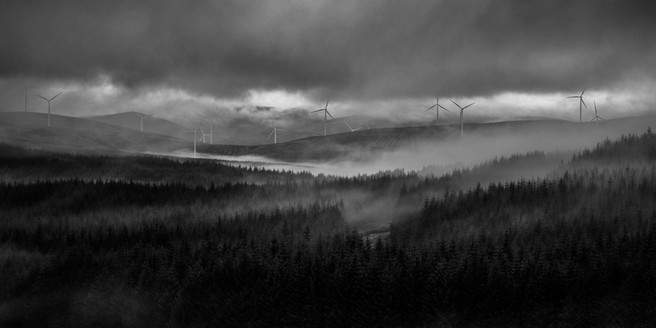 M: It's trying to work your composition from the subject. That's why I like working with primes to be honest. I know I've mentioned the two zooms but most of my favourite pictures this year have been with either the 24mm, 50mm or 105mm. Having the primes makes you work harder to get that composition.
M: It's trying to work your composition from the subject. That's why I like working with primes to be honest. I know I've mentioned the two zooms but most of my favourite pictures this year have been with either the 24mm, 50mm or 105mm. Having the primes makes you work harder to get that composition.
T: It does - it forces you to start moving whereas the temptation is to compose with the zoom unless you are very strict with yourself
M: I know you asked me earlier "What do you think about when you're taking pictures". When I first started taking pictures I didn't think about anything. And when you first said about interviewing me I thought "What do I say?". It's the absence of thought when you're taking picture. If there's an absence of thought then you are more open to what is out there. I was spending up to sixteen hours a day sitting behind a desk examining paedophiles computers, which is possibly about as nasty a job as you could think of to do. So to go out and just clear your mind of everything was a gift.
But it wasn't a conscious decision to clear my mind. When I went out taking pictures it was just a state that I found myself. If you go out with your mates taking pictures you don't have that. Quite often I'll go out with my pals but I never come back with something that I think that's nice. Unless I go off on my own, otherwise you're in that group mentality. You don't have the time to get into that state of mind because you're chatting and whatever. If you see a shot you're less likely to just stop.
T: You get quite a good reaction off Flickr, how did you feel about that.
M: Going back to what David Ward said about competitions in his recent magazine article, it's the same with social media. As much as it's very nice to have that reaction and as much as we say we could live without it, it massages your ego. Like today, the picture I put up of Martindale - I haven't put a picture up on Flickr recently because it's complete pants with the speed it loads and does everything else. And even viewing your friends pictures is painful. I'm sorry but I'm limited for time; My wife wants the laptop, I want the laptop, kids are on the internet so it's slow as it is and we're going watch a film and open a bottle of wine so I don't have the time to sit down. 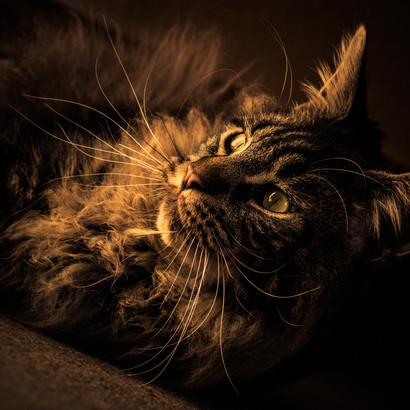 Bearing in mind too that when I'm working on the boats (on Ullswater) I'm out of the house about ten to eight and I get back about seven and I've been on my feet all day. It's not a hard strenuous job but you're still tired and by the time you've had tea, done everything else, had a chat to the boy, cuddled the dog, fought off the cats, it's nine O'Clock. I feel awkward that I put up a picture and a lot of people comment - that picture from Martindale went number one in Explore and it got about 1200 favourites in a day and god knows how many comments. I feel bad that I can't go back and look at all of these other people's pictures. I don't have the time. I look at a few people, the likes of Brian Kerr because I've always looked at his pictures and he always produces something nice and natural and professional taken; The likes of Colin Bell - I often see his images and think "Ooh, I need to go there!" - even if I won't take the same picture.
Bearing in mind too that when I'm working on the boats (on Ullswater) I'm out of the house about ten to eight and I get back about seven and I've been on my feet all day. It's not a hard strenuous job but you're still tired and by the time you've had tea, done everything else, had a chat to the boy, cuddled the dog, fought off the cats, it's nine O'Clock. I feel awkward that I put up a picture and a lot of people comment - that picture from Martindale went number one in Explore and it got about 1200 favourites in a day and god knows how many comments. I feel bad that I can't go back and look at all of these other people's pictures. I don't have the time. I look at a few people, the likes of Brian Kerr because I've always looked at his pictures and he always produces something nice and natural and professional taken; The likes of Colin Bell - I often see his images and think "Ooh, I need to go there!" - even if I won't take the same picture.
I need to show you Gavin Dunbar's pictures too. I think he really does do a good shot. However when you do the classic, square, black and white long exposure shots you're always going to be compared to Michael Kenna. But it's the idea of creating a shot rather than taking it that seems more of a fine art thing. It's the same with the case of Julius Tjintelaar and his architectural work.
T: You've no interest in that sort of things?
M: I like it - I really like it. It's not so much a case of I can't do it but I've never done it so I don't know. The look of the initial shot is obviously important but it's the layering of the light and the toning. This is creating things in the computer too much for me. When I did the computer forensics the longest shift I did was six in the morning and because of the nature of the job and the person I was investigating it had to be done as quickly as possible. I had this thought "I wonder if it's time for a coffee yet" and looked at my watch and it was 5pm. I eventually stood up to leave at 11:30 and came back in at 6am the next morning and started again. So really the reason I use Lightroom and a bit of Silver FX only is that I don't want to spend all day on a computer and then all night on a computer. So it was a conscious decision at the start that, although I'd learned Photoshop with Billy Currie - he's a cracking lad with some great advice and he's a whizz with Photoshop - he uses it to enhance and blend images in a very natural way. But I'd rather use grads and use one shot and then spend ten minutes in Lightroom. If it's an image that I'm thinking there is something really special possibly I might spend another ten minutes.
Some people have asked me how I've achieved the look with an image like 'The River Runs Through It', it's very, very painterly. To be honest I've got a tif now that I use and I don't entirely know how I did it! It was Photomatix but I did something else to it and I'm not sure. I'd had three or four glasses of Rioja.
T: That's obviously the formula for your painterly look then!
M: Well it's not a typical one. Most of my shots are a quick preset, of which I have a lot, and a few tweaks afterwards. The dark shots of Venice are some presets I've created myself as they are very dark and I'm not sure how they'll print - we'll have to see. I see no problem at all in having large areas of darkness.
I've taken quite a few long exposures, very dark photographs, and I still like doing them but, thinking about it more since my dad falling ill and dying, you have to put things in a bit of focus because none of us is going to be here forever. So you can't just keep on going "I'll do this, I'll do that". For me it's more about capturing a moment and it doesn't matter if that's a landscape moment or my cat looking beautiful in a bit of light or my dog looking majestic sitting atop of Melbrigg - it doesn't matter what it is - like the poppy shot I showed you taken by the side of the road. I love that - OK, it was a little bit thought about because I realised poppies were out elsewhere and that poppies would be out on that road and the setting sun should be in the right place, etc. But it was instinct and luck to get there at the perfect time. You always need a bit of luck don't you. The old golfing phrase from Gary Player, "The more I practise the luckier I get" and I suppose if you're out there more often then there is more chance of you seeing the shot.
T: Do you think having been on the boats up and down Ullswater you've learned more about the light and the way that the weather works in the area
M: I think it shows you how there is very, very rarely bad conditions. There is always a shot.
T: You take a camera with you out on the boat don't you?
M: I've got a little Fuji X100 that I bought second hand and I love it. But that's a 35mm equivalent lens which is a great focal length.
T: Are there a few on Flickr or Facebook?
M: On my Facebook photography page there is a little album for the Fuji X100 and I'll need to add some more in.
T: It must throw up a lot of opportunities when you're going down the lake.
M: Yes but then you miss the best ones sometimes. We were coming down in the boat a little while ago and it was really quite a calm day and we were going down in Raven, a lovely boat built in 1889, and there was a family at the front who wanted a chat about photography and they had a Fuji. I was in the bar serving and just as I was about to go out for a chat with them someone came in with an order for 12 teas and right at that point I saw this line of geese flying about a foot above the surface of the calm water. A huge long line of them flying astern running parallel to the boat at about 20ft. This was pretty nice but then the course of the boat and geese started to converge and this row of geese just flew in front of the boat and the last few veered up and over the front. From where I could see it it looked amazing. I finished serving the lady and went through to the front and they said that the geese had just skimmed across the front of the boat at head hight. I could just imagine this wildlife photographer of the year shot of these geese on a strafing run with a Fuji X100 instead of a £6,000 lens.
T: Being a local to the Lakes, what is your favourite area.
M: Definitely Ullswater! It's natural. It doesn't have the commercial aspect of some of the others. Windemere to me is like Blackpool for the Lakes, I'm not insulting Blackpool here but it's mobbed by tourism. It's not a relaxing place to be. Quite often I'll go to Haweswater as well. Haweswater in the 1920's before they dammed it must have been a thing of beauty.
T: Not many people go to Haweswater either do they?
M: One of Wainwright's favourite walks was going up Rough Crag, Long Stile over Caspel Gate. Doing it this way you can see Blea Water below you which is a little corrie but 200 and something feet deep. You come down by Nan Bield pass and you've got Small Water in front of you with Haweswater beyond and it's fabulous. The name of the pub was the old Dun Bull and that was nestling in right at the base of the crags. This little village at the bottom of the feels. The lake was in two sections, there was a top half and then it widened out again. It must have been fabulous. Lord Burkett saved Ullswater from being dammed in the early 60s.
T: I didn't realise Ullswater was going to be dammed!
M: Oh yeah! It was going to be dammed in 1962 and Lord Burkett stopped it. The guy deserves sainthood as far as I'm concerned. But Ullswater is different to me. You go from the Eden Valley to the Lake District I think. At the Pooley Bridge end you are really still part of the Eden Valley I think and the hills that you can see from there looking across from Dunmallet Rigg - the Pennines, clear as day! Right there just a few miles away. But you come down the lake and you come past Arthur's Pike and you come past Howtown, Hallin Fell and Steel Knotts behind and then you've got Place Fell coming straight into the lake then across to Sheffield Pike, Silver Point and St Sunday's just towering over the lake and you're in the heart of the Lake District.
But the heart of the Lake District isn't madly populated. We've just walked up Deepdale and I think anybody who walks into Deepdale and comes around that corner and to be faced by Greenhow End and isn't impressed there is something wrong with them.
T: You posted the Martindale picture to Flickr recently - tell me a little about that one.
M: Well I scrambled up Swarthbeck - which isn't probably advisable as it's a really steep climb and quite highly rated - but I was on a waterfall hunt and I know the area. When I came out from there below Bonscale Pike you could see the hail coming in and I've always wanted a shot of the road with a load of hairpin bends going up to the new Martindale church with the rain coming down, storm passed, greens all lush and verdant with the road lit up like a silver ribbon. So instead of cutting back down Swarthbeck I just started legging it across the fell at a stupid angle. It's nightmare running across a steep slope.
I got to the point just as the hailstorm passed over just with a t-shirt and shorts on. Camera with a cheap 50mm Nikkor on and I was just in time for the shot. I loved that. That's capturing the moment to me. It's what it's all about. It's a fresh shot that but it's typical of the opportunities around Ullswater.
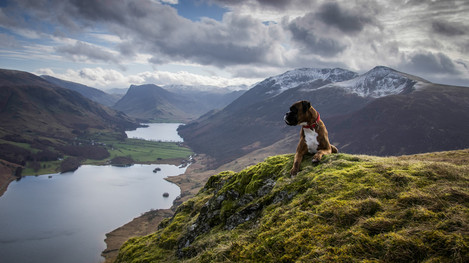 T: Do you think your photographs come from planning or do you just walk and then let opportunities appear?
T: Do you think your photographs come from planning or do you just walk and then let opportunities appear?
M: A lot of them are in my head before I take them. But it's just being in the right place. The shot of the road had been in my head for quite a while because I'd seen it before but you need the right vantage point, hence the fifty year old running like a mad thing across the fell.
T: So you hadn't gone for the picture but for the waterfalls but left yourself open to opportunity.
M: Yes. And I didn't look up as I ran across because I didn't want to see brilliant light as I ran across in the wrong place. Head down, totally drenched when I got there. Looking over Aira Force is nice but I don't think the waterfall is particularly nice when you're there. The river above and below it can be nice. As the river comes down it comes through a lovely gorge and I want to get down there when the it's really icy with the help of a climbing friend. Sometimes these ideas work, sometimes they don't. Sometimes you get them exactly as you'd planned and they look crap, but that's the way of the world. You have to keep trying.
T: You think Ullswater has enough to keep you going
M: Oh year! Since I've been on the boats I've seen loads. I've seen a perfect winter shot that just needs the right amount of snow, the right light, etc. Hopefully you'll look at the final result and think "Is that Austria!?"
T: You've been doing the occasional workshops as well I beleive.
M: I've been doing some for a local woman who was ill last year. I was uncomfortable doing the workshops to start with but I actually really enjoyed them because it's not just a workshop for the person you are taking out, it also focusses yourself. It makes you think more about the process and forces you to vocalise your thoughts and collect them together and organise them. Before you have all of these ideas and thoughts about how photography works etc but they're just floating around. And that was one of the reasons I said yes to the interview because I can't remember when you first asked me...
T: It was about a year and a half ago I think and you weren't that keen on it all if I remember well
M: Well I thought "What can I talk about?" but then I realised the problem is actually stopping me talking. But I found the with the workshops that as long as you know and love your subject you don't need to script it or know exactly what your are going to say - it sounds stilted if you do that.
I might have only been doing it for a short space of time but I know a bit about landscape photography.
T: You've done it fairly intensely though
M: Oh yeah - it's definitely something of an obsession. But I played golf to a five handicap so I like doing things well
T: And you've stopped the golf?
M: I've stopped completely yes. I play once a year with a few mates - we go away for a trip and we have done for about 29 years so it's a nostalgia thing I think. We used to go for a drink and do things but we now talk about what we used to do.
T: You were saying you used to be an audiophile as well and all the audio gear has gone as well?
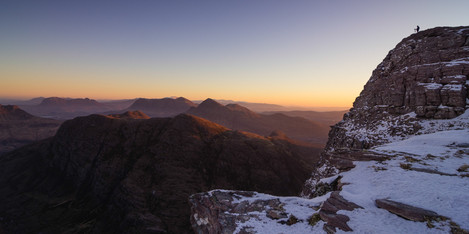 M: Well the audio as much as anything was to chill from work. I got into the music as a way of relaxing. When I first started doing the anti-paedophile work it was a case of listening to music, all sorts of stuff I've got about three or four thousand CDs and records, and it helped me chill after work. But then it got to the stage that it was so stressful that I needed to do more exercise and of course because I was doing more of that work I was also walking to de-stress and that's when the photography kicked in and it was like "How much is that lens!?" so that's possibly the amplifier and phono amp. The problem is that I can still walk long distances carrying heavy loads; I can still spot a red deer on the side of Place Fell from the deck of the boat who are sitting their with binoculars and still can't see it; The bottom line though is that my ears are crap. I had big Tannoy Glenair 15 dual concentric drivers, top of the range Sugden kit but interestingly it was the hi-fi forums that got me into Flickr. I joined so that I could post images on the forums (HiFi Wigwam and Pink Fish Media) as they both had a page for photographs.
M: Well the audio as much as anything was to chill from work. I got into the music as a way of relaxing. When I first started doing the anti-paedophile work it was a case of listening to music, all sorts of stuff I've got about three or four thousand CDs and records, and it helped me chill after work. But then it got to the stage that it was so stressful that I needed to do more exercise and of course because I was doing more of that work I was also walking to de-stress and that's when the photography kicked in and it was like "How much is that lens!?" so that's possibly the amplifier and phono amp. The problem is that I can still walk long distances carrying heavy loads; I can still spot a red deer on the side of Place Fell from the deck of the boat who are sitting their with binoculars and still can't see it; The bottom line though is that my ears are crap. I had big Tannoy Glenair 15 dual concentric drivers, top of the range Sugden kit but interestingly it was the hi-fi forums that got me into Flickr. I joined so that I could post images on the forums (HiFi Wigwam and Pink Fish Media) as they both had a page for photographs.
T: It's interesting that the hifi and camera enthusiasts share a similar obsession for gear.
M: The guy I bought the Fuji X100 from is a Pink Fish Media member. He advised me to buy the Nikon 105mm f/2 DC which is a wonderful lens. The photography side of that forum is now almost as big as the music side.
T: You were saying earlier that you started listening to the audio gear rather than the music and it's a trap that photographers sometimes get into as well.
M: That's right! You shouldn't be there sitting with your mate saying "I'm just going to change these interconnects. What do you think of the sound now?". If you start examining the minute nuances of every tiny detail you're not enjoying the music anymore. You're not relaxing and letting it wash over you. Damian Shields was at the Landscape Photographer of the Year and had a picture of St Michael's Mount taken on a Fuji S3 I think and it was printed huge and held together beautifully and that's with a six megapixel camera. And in Dav's book there is an iPhone shot.
If you're a nature shooter possibly you need some amazing gear but for landscape you can get away with so many things. It's about capturing the atmosphere, about making somebody feel something when they look at a picture.
T: What do you want to do with your photography? Would you like to publish anything?
M: It would be nice to do that but at the end of the day I just want to carry on enjoying taking pictures. I just love to carry on being enthusiastic - being in love with taking pictures and going out and seeing something and thinking "Wow!". You don't need to have a camera in your hand. For my birthday last year I was at the top of Harrison Stickle and it was a beautiful dawn but it was my dawn. I think I only took two pictures. It's the enthusiasm for the world around us I suppose.
I've also got to be more confident about my own photography. I have loads of pictures on Flickr that nobody can access because I wasn't sure that they were worthy of being out there or they were just for me. But I think you have to have confidence in your own beliefs and really I should probably do more of that. Dav Thomas' book is wonderful and it's an eclectic mix of very personal images. That's the sort of thing I'm thinking about. But that's a long term thing. But I need to look at the long term. John Parminter's Scotland book took him four years and I've only been doing photography for three and a half!
T: Do you think there is an Ullswater book in you then?
M: Oh yeah! It just depends on how to publish it. There are so many aspects of Ullswater that don't even have to include the lake. I could almost do a book from my work on the steamers.
T: That would probably be very successful given the amount of foot traffic. A book of X100 images would be interesting too.
M: I'm so looking forward to Autumn on the steamers too. It should be spectacular.
T: Thank you!
You can see more of Mark's excellent photography on his Flickr stream.

